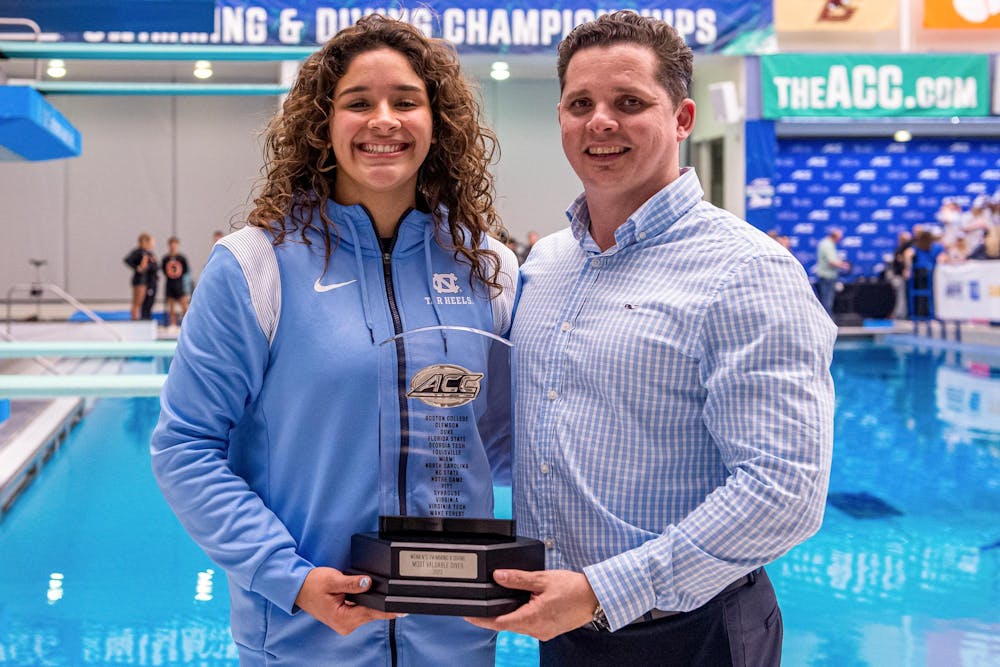Aranza Vazquez and Yaidel Gamboa share a strong bond as athlete and coach, but also through their shared Latino heritage. Gamboa is originally from Cuba and recruited Vazquez when she was a talented, yet relatively unknown, diver from La Paz, Mexico. Now, with Gamboa's guidance, Vazquez is a two-time national champion and winner of the ACC triple crown of diving.
The Daily Tar Heel Sports Editor Shelby Swanson sat down with Vazquez and Gamboa on Tuesday morning to discuss what Hispanic Heritage Month means to both of them.
This interview has been edited for brevity and clarity.
The Daily Tar Heel: Tell me about your journey to come to the U.S. and how diving played a role in that.
Vazquez: Both of my coaches [growing up] were Cuban. So them and Gamboa knew each other, and from there, Gamboa started watching some of my videos. He saw me at a competition and then he invited me at Missouri in 2018 to go see the school and see the program. Then he transferred here [to UNC] and I really wanted to practice with him.
Gamboa: I’ve been diving since I was a five-year-old, so diving is what I’ve done my whole life. Through diving, I got an opportunity to coach in Venezuela for two years and coach the national team there, so that’s how I got out of Cuba. Because of the political situation in my country, I didn’t want to go back. I knew I wanted to come to the States. It wasn’t easy, but I went to the U.S. Embassy in Caracas, Venezuela. They approved me for parole and a few months later I was able to come to the States in 2009. I didn’t speak any English — I had to learn a new language and a new culture…it took me four or five years until I got my first coaching job in Orlando.
DTH: What does Hispanic Heritage Month mean to you?
Vazquez: I guess it’s different now that I’m here because back home, we didn’t have a month for Latin Heritage Month. So being here, and still feeling recognized and feeling like there’s a community for me, [it] helps with being here alone, without my family. Now I have my brother with me, but in years before that, that sense of community and that sense of ‘I’m not alone,’ and [because] there’s so many other Latin and Hispanic people that I could find and make connections with, it helps with that loneliness that you can feel.




